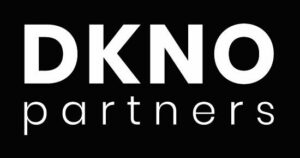VAT and tax in Denmark
DKNO Partners advises you and your business
What does VAT and tax mean for your business in Denmark?
In Denmark, handling VAT and tax correctly is essential for running a business legally and efficiently.
VAT registration:
All businesses that sell goods or services subject to VAT must register for VAT if their turnover exceeds DKK 50,000 within a calendar year. This registration makes it possible to charge and report VAT correctly and to deduct input VAT on business expenses.
Corporate tax:
If you run a private limited company (ApS) or public limited company (A/S), the company is tax resident in Denmark and must pay corporation tax on its taxable income. The corporate tax rate is 22% in 2025.
VAT registration requirements and benefits
To register your business for VAT in Denmark, you must first have a CVR number.
Once you are registered, you need to:
- Charge 25 % VAT on most goods and services.
- Report VAT to the Danish Tax Agency via VAT reporting on TastSelv Erhverv.
- Pay Danish VAT when importing goods, with the option to deduct input VAT on business expenses.
Mums
VAT is a tax that businesses collect on behalf of the government. The standard rate is 25 % and applies to most goods and services. However, certain services, such as healthcare and education, are exempt from VAT. Knowing the correct VAT rates is essential for correct invoicing and reporting.
VAT registration
All businesses with a turnover of more than DKK 50,000 within 12 months must register for VAT with the Danish Tax Agency. Registration makes it possible to collect VAT from customers and deduct VAT on business expenses.
Tax rates
The corporate tax rate in Denmark is 22 % and applies to all ApS, A/S and other taxable companies. The tax is calculated based on the company's profits and must be reported to the Danish Tax Agency via the annual tax return. A correct understanding of the tax system ensures that your company complies with the rules and avoids unnecessary fines.
What do you need to know about tax in Denmark?
As a company in Denmark, you must pay tax on your company's profits. The tax rate depends on your company form and business type. Correct tax reporting also requires ongoing compliance with Danish bookkeeping and accounting rules.
Employer liability
If your company has employees in Denmark, you must comply with the employer liability rules. The company must pay labour market contributions (8 %) and ATP contributions for each employee. In addition, salary, tax and social security contributions must be reported via the eIncome system at the Danish Tax Agency. If the company fulfils the criteria, it must also offer a mandatory pension scheme (ATP and possibly company pension) for employees.
Advance tax and deductibility
All companies in Norway must pay withholding tax based on expected profits. The Norwegian Tax Administration calculates the withholding tax based on previous years' accounts, but you can request an adjustment if the company's financial situation changes. In addition, there are a number of deductions that can reduce tax liability, including operating expenses such as office rent and software, travel expenses such as transport and accommodation, and investments in machinery and equipment that can often be amortised over time.
Dividend taxation and special rules
As the owner of an ApS or A/S, you are only taxed when dividends are paid out. The dividend tax is 27 % up to DKK 58,900 (2025) and 42 % for amounts above this limit. In addition, certain industries may be subject to special tax rules, such as the energy sector, where special duties and taxation rules may apply.
Tax reporting and financial statement requirements
As a business in Denmark, it's important to keep on top of tax reporting and annual accounts to ensure your company complies with legislation and avoids unnecessary fines. Below is a checklist of the most important requirements and deadlines that Danish businesses need to be aware of.
-
Submission of annual accounts
All ApS and A/S must submit their annual accounts to The Danish Business Authority. This ensures that your company's financial information is recorded correctly and becomes publicly available. The deadline depends on the financial year, but is typically 6 months after the end of the financial year.
-
Submission of tax return
Your company must submit tax information annually to The Tax Agency. The deadline for corporate tax reporting is usually 1 July of the year following the end of the financial year. It is important to ensure that all information is correct and submitted on time to avoid penalties.
-
Audit of the financial statements
Companies that exceed certain size thresholds must have their accounts audited by an accountant. This is especially true for larger companies and ensures the credibility and accuracy of the accounts. Smaller companies may be exempt from the audit requirement in some cases.
-
Payment of advance tax
Withholding tax is collected in two instalments throughout the year, based on the company's expected profits. If your company's finances change, you can request an adjustment of the withholding tax to avoid under- or overpayment.
Get a handle on Danish VAT and tax with DKNO Partners
Navigating Danish VAT, tax and business finance regulations can be a complex task, especially when it comes to registration, tax reporting and employer liability requirements. With the right advice, you can ensure your business meets all requirements while optimising the financial opportunities available in Denmark.
Do you need further help with the application or registration? Contact us here
